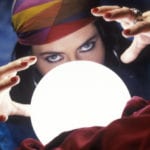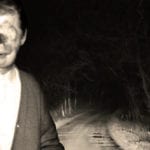 History
History  History
History  Weird Stuff
Weird Stuff 10 Wacky Conspiracy Theories You Will Need to Sit Down For
 Movies and TV
Movies and TV 10 Weird Ways That TV Shows Were Censored
 Our World
Our World 10 Places with Geological Features That Shouldn’t Exist
 Crime
Crime 10 Dark Details of the “Bodies in the Barrels” Murders
 Animals
Animals The Animal Kingdom’s 10 Greatest Dance Moves
 Movies and TV
Movies and TV 10 Box Office Bombs That We Should Have Predicted in 2025
 History
History 10 Extreme Laws That Tried to Engineer Society
 History
History 10 “Modern” Problems with Surprising Historical Analogs
 Health
Health 10 Everyday Activities That Secretly Alter Consciousness
 History
History 10 Dirty Government Secrets Revealed by Declassified Files
 Weird Stuff
Weird Stuff 10 Wacky Conspiracy Theories You Will Need to Sit Down For
 Movies and TV
Movies and TV 10 Weird Ways That TV Shows Were Censored
Who's Behind Listverse?

Jamie Frater
Head Editor
Jamie founded Listverse due to an insatiable desire to share fascinating, obscure, and bizarre facts. He has been a guest speaker on numerous national radio and television stations and is a five time published author.
More About Us Our World
Our World 10 Places with Geological Features That Shouldn’t Exist
 Crime
Crime 10 Dark Details of the “Bodies in the Barrels” Murders
 Animals
Animals The Animal Kingdom’s 10 Greatest Dance Moves
 Movies and TV
Movies and TV 10 Box Office Bombs That We Should Have Predicted in 2025
 History
History 10 Extreme Laws That Tried to Engineer Society
 History
History 10 “Modern” Problems with Surprising Historical Analogs
 Health
Health 10 Everyday Activities That Secretly Alter Consciousness
Top 10 Creepy and Dark Ballets
As the Halloween season approaches, several images come to our minds: witches, monsters, haunted houses, horror movies, a full moon, and overflowing amounts of candy. It is that time of year where we indulge in all things macabre and spooky. And now you can add another unexpected activity to your October fright-filled festivities—Ballet!
How many of us think of The Nutcracker or Swan Lake when asked to name a ballet? However, the spectrum of ballet goes far beyond its stereotype as an old-fashioned sweet-natured artform that plays out lovely romantic and whimsical tales for elite society. Yes, ballet is sophisticated, graceful, and beautiful, but that does not mean it is never unsettling. There are numerous examples of this dancing artform that are morbid, edgy, violent, disturbing, and even scary—and I am not just talking about the movie Black Swan!
So, in the spirit of the upcoming Halloween season where people embrace the macabre, here are the top 10 creepy and dark ballets.
Related: 10 Times Performers Died On Stage And The Show Just Went On
10 The Cage
A ballet of bugs? Yup! This experimental dance piece premiered in 1951 in America by famed choreographer Jerome Robbins. This 14-minute ballet showcases the natural selection among Earth’s creatures by having dancers depict a clan of female insects that prey on their male counterparts. One signature scene involves a newly-born female creature discovering how to move her body before attacking a male intruder and killing him.
The ballet’s premiere sparked divided reactions from critics and audiences, leading to an overseas controversy where officials in the Netherlands nearly succeeded in getting the piece banned from being performed in their country. Set to Stravinsky’s Concerto in D, this fascinating ballet of bugs is still considered shocking, strange, and weird yet wildly creative. Next time you cringe at a giant insect crawling on your floor, imagine it as a ballet dancer![1]
9 The Haunted Ballroom
Disney’s Haunted Mansion ride isn’t the only place you can see ghosts eerily dance through a ballroom! The Haunted Ballroom is a ballet that premiered in 1934 in England with choreography by Ninette de Valois. This gothic ballet tells the story of a family tormented by a fatal curse that ultimately dooms each Master of the house to be danced to death by three ghosts who haunt the ballroom.
The ballet showcased all of the visual aspects of a typical Halloween-inspired scene: a gloomy ballroom filled with cobwebs, a hovering eerie night sky, and drab costumes in black, white, and grey colors. Ghosts, cobwebs, curses, and death all add up to one haunting ballet.[2]
8 Eaters of Darkness
This intense ballet shows the process of one woman’s descent into madness. Eaters of Darkness tells the story of a young bride whose husband wrongly commits her to an asylum; the imprisoned woman is eventually driven mad from being surrounded by genuine insanity.
The intense ballet, which premiered in 1958 in Germany and was choreographed by Walter Gore, experienced notable revivals and became known for the dramatic acting demands placed on its starring ballerina. Just as its title suggests, Eaters of Darkness is downright chilling.[3]
7 Edward Scissorhands
Lovers of dance and darkness rejoice: there is a Tim Burton ballet! Burton’s 1990 dark fantasy film Edward Scissorhands established the director as a visionary who skillfully explores the macabre. The movie tells the story of an artificial human being named Edward and how he is left unfinished after his inventor dies, leaving Edward with large scissor blades in place of his hands.
In 2005, renowned choreographer and director Matthew Bourne premiered a successful ballet adaptation of the film for audiences in the United Kingdom. Bourne’s Edward Scissorhands ballet reimagines the story for the stage, using dance and mime to depict the story’s whimsy, sense of humor, and darkness. This ballet is visually stunning and beautifully creepy.[4]
6 Giselle
The next entry on this list is a popular ghost ballet titled Giselle. Giselle premiered in 1841 in France and has since become a staple in the ballet repertoire. This tragic romance involves a young peasant woman named Giselle who succumbs to grief-stricken madness and dies of a broken heart after being betrayed and duped by the man she loves.
Upon her death, Giselle is buried in the forest and transforms into a wili. Wilis are ghostly female spirits who died from feeling betrayed by their lovers, destined to haunt the forest nightly and lure men into dancing to their deaths. Giselle ultimately protects the man who betrayed her from being killed by the wilis before returning to her grave at sunrise. This tragic ballet sets its entire second act at night in a forest cemetery haunted by dancing female ghosts who kill men out of vengeance. The story is genuinely bleak, powerful, and dark.[5]
5 Variations pour one Porte et un Soupir
Next on our list is a ballet that is a prime example of artistry being both beautiful and bizarre. Variations pour one Porte et en Soupir (translates to Variations for a Door and a Sigh) is an avant-garde ballet set to an experimental sound composition of the same name. The “music” is a score entirely built on sound effects associated with human sighs and the movement of doors (slams, creaks, and rusty hinges).
The 23-minute ballet, which premiered in America in 1974, utilizes two dancers to represent the sound characters: A man represents the Sigh, and a woman wearing a black cape represents the Door. This highly experimental ballet offers audiences a unique duet of dancers and noises that are both highly fascinating and mega creepy. The unsettling score and physical movements elicit dark and frantic energy that feels like the beginning of a horror film in motion.[6]
4 Mayerling
Mayerling is an intense ballet based on a shocking true story by interpreting the mysteries behind the 1889 deaths of a royal prince and his young mistress. The ballet tells the story of Rudolph, Crown Prince of Austria, who is emotionally unstable and possesses an unhealthy fascination with death. After the prince is forced to marry a princess, he has an affair with Mary Vetsera, a teenager with similar morbid obsessions.
The story climaxes with them both visiting a hunting lodge called Mayerling, where they indulge in one more heated session of passion before enacting a suicide pact. After having sex, Rudolph shoots Mary dead before turning the gun on himself, leaving the royal family desperate to cover up the violent affair that ended in two bloodied, lifeless bodies. The disturbing ballet warns of the dangers of uncontrollable passion and dark obsessions.[7]
3 Sleeping Beauty
Everyone knows the classic fairy tale of princess Aurora put under a sleeping curse by an evil fairy. In 2012, visionary choreographer Matthew Bourne premiered a gothic reimaging of this timeless tale set to Tchaikovsky’s famous Sleeping Beauty orchestral music.
Bourne’s version of Sleeping Beauty expands the story to include more disturbing characters and imagery such as bloodthirsty vampires, a super creepy baby puppet, sinister fairies and rodents, a seductively dark club scene, and a nightmare-inspired sequence depicting evil creatures forcing Aurora to dance without her face (making her look demonic). This provocative and wildly imaginative Sleeping Beauty ballet is sure to keep you awake.[8]
2 The Rite of Spring
The Rite of Spring shocked audiences when it debuted in Paris in 1913. The combination of Igor Stravinsky’s intense orchestral music and Vaslav Nijinsky’s ambitious choreography produced an experience that was too extreme for many in the audience, leading to a reported riot during the premiere of the performance.
The ballet depicts a pagan ritual in which a young woman is selected as a sacrifice who dances to her death through an extreme sequence of jumps. The controversial ballet heavily creeped out its viewers and became a historical example of audiences displaying an overly dramatic reaction to bold artistry.[9]
1 The Red Shoes
You can’t make a list of the top dark ballets without discussing The Red Shoes. This story has become iconic in the world of dance. “The Red Shoes” is a fairy tale written by Hans Christian Andersen, the author behind several other classic fairy tales such as “The Little Mermaid,” “The Ugly Duckling,” “The Emperor’s New Clothes,” and “Thumbelina.” Andersen’s disturbing story tells of a young peasant girl doomed to dance forever in her red shoes, forcing the girl to take drastic measures to end her curse, including cutting off both of her feet.
This tale inspired the 1948 film The Red Shoes about a ballerina’s struggle between romantic love and a fulfilling dance career that ultimately leads to her death. The movie is famous for its 17-minute ballet sequence that interprets Andersen’s fairy tale in a dramatically dark and cinematic fashion. In 2016, famed ballet choreographer Matthew Bourne adapted a dramatic stage version inspired by the popular fairy tale and the 1948 film.
Bourne’s award-winning ballet The Red Shoes paid homage to the golden age of Hollywood by utilizing music from Bernard Herrmann, the composer of some of the most dramatic and intense music ever on screen. Some of Hermann’s famous scores include Psycho, Fahrenheit 451, Citizen Kane, and the television series The Twilight Zone. Whether in a book, on a stage, or in a movie, this cautionary tale uses dance to teach a lesson and warn of the darkness that comes with obsession and pride.[10]








